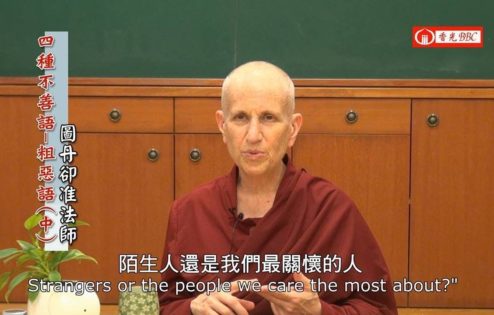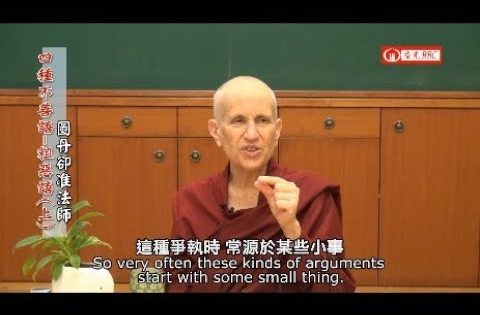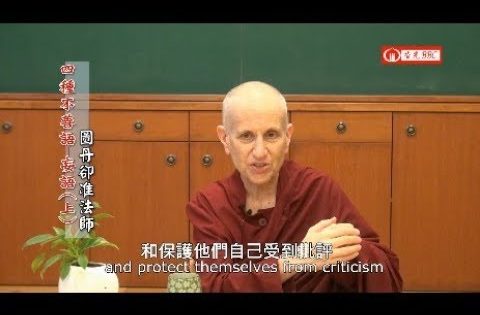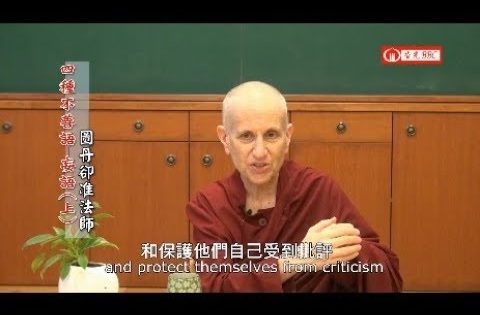Cultivating Healthy Relationships
Relate to others with awareness of their kindness and the wish to benefit them.
All Posts in Cultivating Healthy Relationships

Being human: Not seeing the world as us and them
Cultivating the mind that sees all sentient beings as equal and how this benefits ourselves…
View Post
False friends
There are four kinds of false friends, who are actually foes in the guise of…
View Post
Being a Dharma community
There is value in practicing and meditating with others. When we participate in our Dharma…
View Post
The fourth nonvirtue of speech: Idle talk (part 2)
Venerable Thubten Chodron shares a positive memory of something she did in a large gathering…
View Post
The fourth nonvirtue of speech: Idle talk (part 1)
The motivation for idle talk is basically to pass time and amuse ourselves. If our…
View Post
The third nonvirtue of speech: Harsh speech (part 3)
Harsh speech sometimes happens in close relationships. In a marital argument, both parties feel hurt…
View Post
The third nonvirtue of speech: Harsh speech (part 2)
When adults scare children by saying there are ghosts, this is a form of harsh…
View Post
The third nonvirtue of speech: Harsh speech (part 1)
Harsh speech includes criticizing, denigrating, and humiliating others. Or we may scold others to “guide”…
View Post
The second nonvirtue of speech: Divisive speech (par...
Divisive speech often arises in the workplace, when a group of people gets together to…
View Post
The second nonvirtue of speech: Divisive speech (par...
Divisive speech often arises when others do what we don’t like, and we seek out…
View Post
The first nonvirtue of speech: Lying (part 2)
We have to observe the situations in which we tell lies. If we have done…
View Post
The first nonvirtue of speech: Lying (part 1)
The Buddha pointed out four types of speech that we should avoid, the first of…
View Post